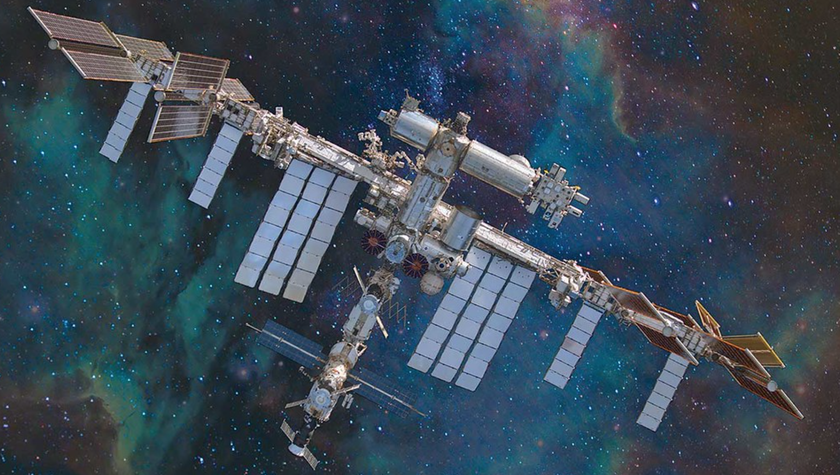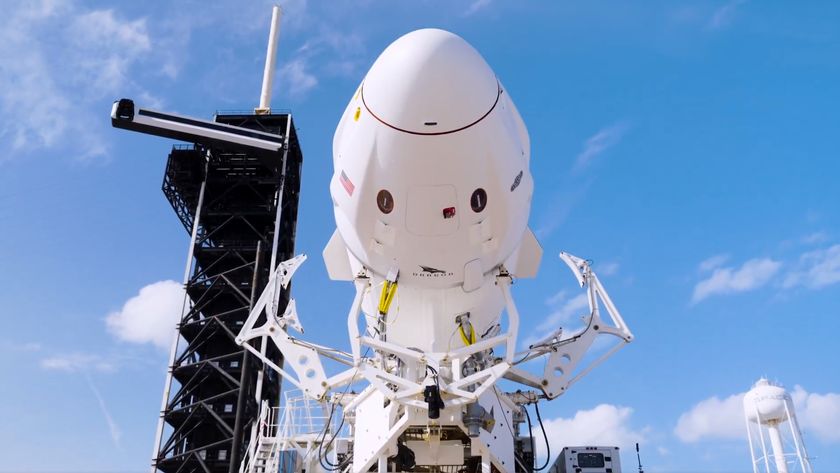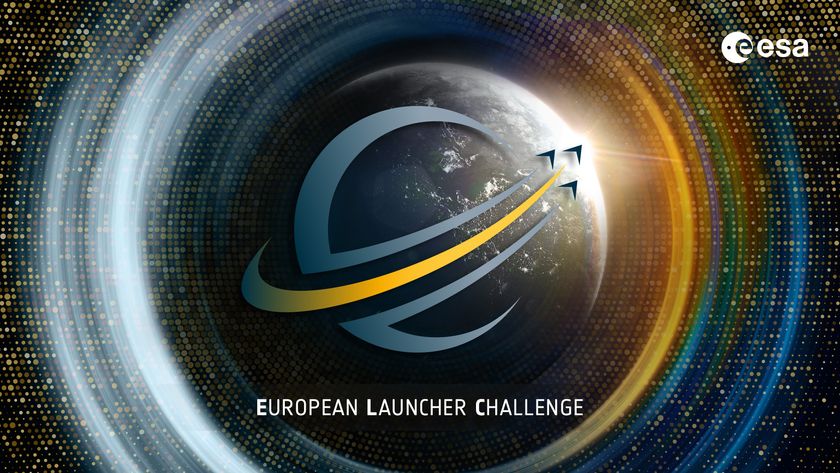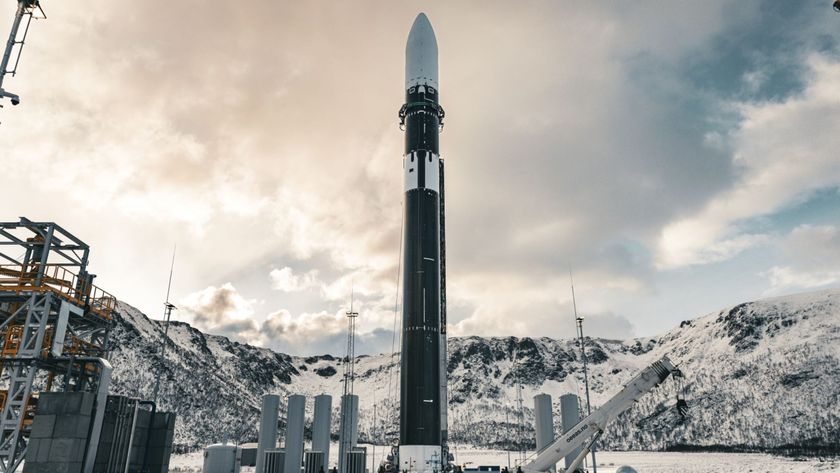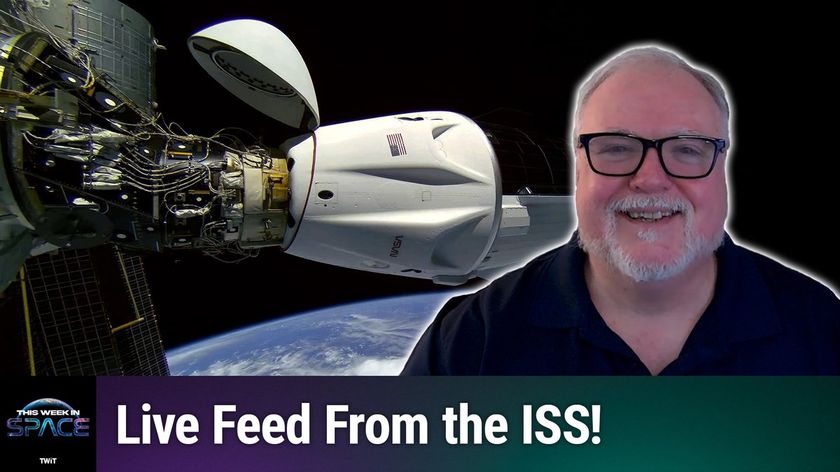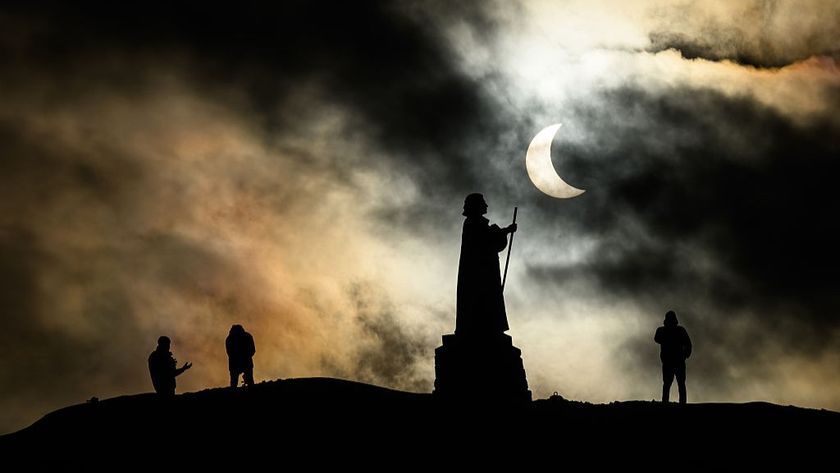Oil Spill Hinders Space Shuttle Fuel Tank Delivery
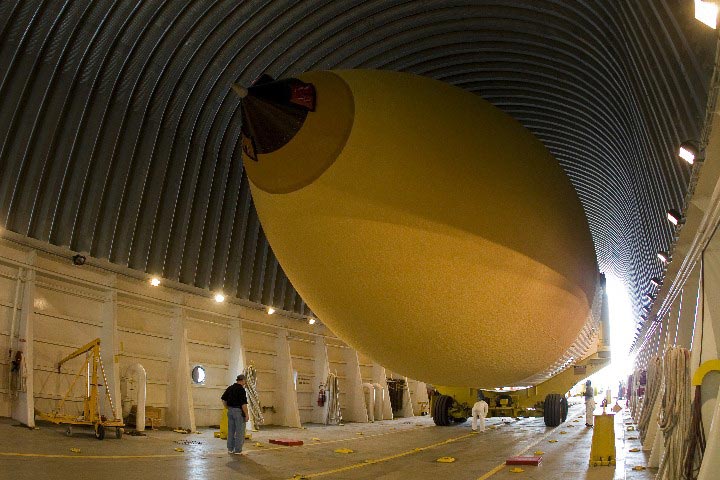
WASHINGTON - The massive oil spill plaguing the UnitedStates Gulf Coast has also thrown a wrench in NASA's plans to deliver a hugespace shuttle fuel tank from Louisiana to Florida for the last launch ofshuttle Discovery in September.
The expandingoil slick has cut into the deep water route typically used by NASAbarges and their tugs to haul the 15-storey space shuttle fuel tanks from theirmanufacturing site ? the Michoud Assembly Facility in New Orleans ? to theKennedy Space Center in Florida to be attached to an orbiter for launch.
Space shuttle program manager John Shannon said Mondaythat NASA's recovery ship Freedom Star ? one of two ships that deliver shuttlefuel tanks as well as retrieve an orbiter's twin reusable solid rocket boostersfrom the Atlantic Ocean after a launch ? is not equipped to make theshallow-water detour around the oil spill.
"It's kind of stuck in Gulfport, Mississippi rightnow because of the oil slick," Shannon told reporters in a morningbriefing. "They've had to take a different path with the barge and theFreedom Star cannot do that shallow-water course to Michoud."
The Gulf of Mexico oil spill was caused by the April 20explosion on the Deepwater Horizon oil rig operated by British Petroleum. As ofApril 28, the resulting oil slick was estimated to have a circumference ofabout 600 miles (970 km), though the shape of the spill is irregular. The slickis enormous, and is big enough to be seenfrom space.
NASA is working with commercial ship operators to haulthe Pegasus barge containing Discovery's fuel tank, called External Tank 137(ET-137) from Michoud to the waiting Freedom Star in Gulfport, which will takeover for the final trip to the Kennedy Space Center. The actual delivery workis expected to begin tonight, Shannon said.
It should take about six days for the fuel tank to makethe 900-mile (1,450-km) trip, Michoud officials added.
Get the Space.com Newsletter
Breaking space news, the latest updates on rocket launches, skywatching events and more!
Space shuttle fuel tanks are built by Lockheed Martin andare too large to be delivered by train or truck. When fully fueled at thelaunch pad, they weigh about 1.7 million pounds (771,000 kg), counting the535,000 gallons of cryogenic liquid hydrogen and liquid oxygen propellant.
The tank delivery hiccup is not expected to affect plansto launch Discovery in mid-September on its last-ever spaceflight. Discoveryjust returnedto Earth last month after delivering spare parts to theInternational Space Station. NASA engineers are now preparing the orbiter forits final flight.
That mission, called STS-133, is slated to launch towardthe International Space Station on Sept. 16, but could slip slightly to allowextra time to prepare new spare parts for the nearly complete orbitinglaboratory.
Discovery's STS-133 mission Is NASA's the second-to-lastshuttle flight planned before the shuttlefleet retires in the fall.? The spaceshuttle Endeavour will launch on the final mission, called STS-134, no earlierthan Nov. 26 to deliver the $1.5 billion Alpha Magnetic Spectrometer to thespace station.
NASA's third space shuttle, Atlantis, is currently ontarget to launch its own final mission ? STS-132 ? on May 14. That flight isaimed at delivering a new Russian science module to the International SpaceStation.
It will be the first time in 15 years a Russian spaceroom has flown on an American space shuttle. The last time was in 1995, whenNASA delivered a new module to the Russian space station Mir.
Atlantis is due to fly a 12-day mission to theInternational Space Station to deliver the new Russian room. Three spacewalksare planned to install the module, replace solar array batteries and delivermuch-needed spare parts.
Join our Space Forums to keep talking space on the latest missions, night sky and more! And if you have a news tip, correction or comment, let us know at: community@space.com.

Tariq is the Editor-in-Chief of Space.com and joined the team in 2001, first as an intern and staff writer, and later as an editor. He covers human spaceflight, exploration and space science, as well as skywatching and entertainment. He became Space.com's Managing Editor in 2009 and Editor-in-Chief in 2019. Before joining Space.com, Tariq was a staff reporter for The Los Angeles Times covering education and city beats in La Habra, Fullerton and Huntington Beach. In October 2022, Tariq received the Harry Kolcum Award for excellence in space reporting from the National Space Club Florida Committee. He is also an Eagle Scout (yes, he has the Space Exploration merit badge) and went to Space Camp four times as a kid and a fifth time as an adult. He has journalism degrees from the University of Southern California and New York University. You can find Tariq at Space.com and as the co-host to the This Week In Space podcast with space historian Rod Pyle on the TWiT network. To see his latest project, you can follow Tariq on Twitter @tariqjmalik.
